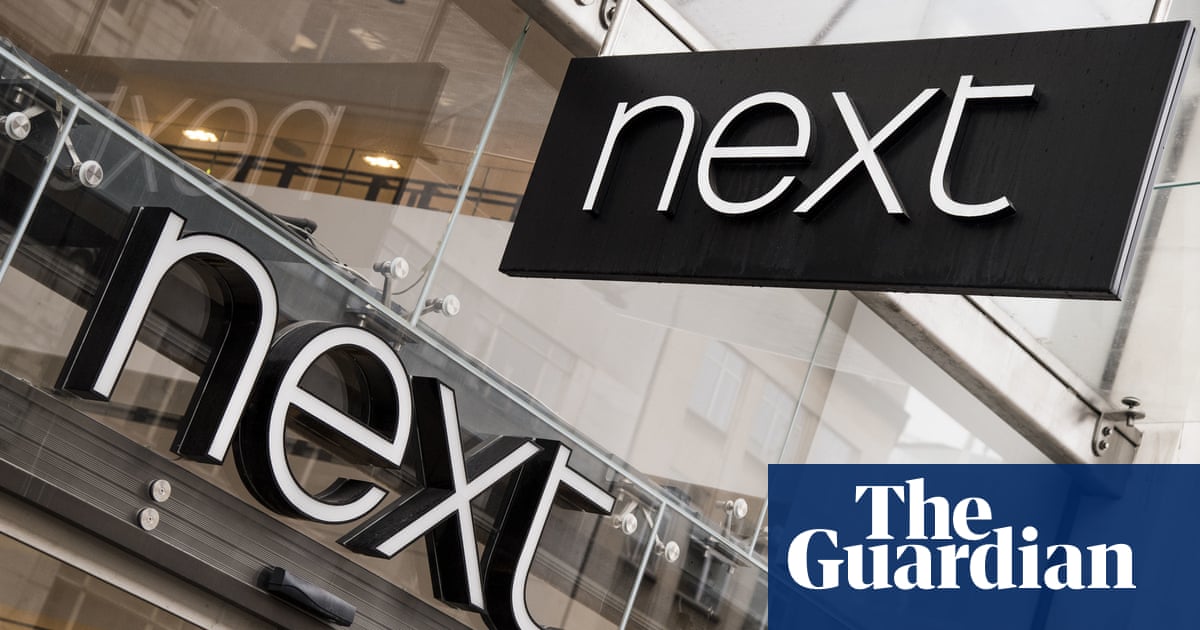
LONDON (Reuters) -British clothing retailer Next raised its profit guidance for the fourth time in six months on Wednesday as shoppers flocked back following the easing of COVID-19 restrictions, but warned labour shortages could impact Christmas deliveries.
Shares in Next rose as much as 4% to a record high of 8,408 pence after it reported a 5.9% increase in first-half profit compared to 2019, before the pandemic disrupted trading.
Sales over the last eight weeks leapt 20% on the same basis, exceeding its expectations.
However, Next, which trades from about 500 stores and online, warned that soon “things may not be as good as they appear today” as the impact of pent-up demand, record savings ratios and lower spending on overseas holidays would diminish.
“It also seems likely that increases in the cost of living, along with the potential effect of seasonal labour shortages on our delivery service, may moderate demand in the months ahead.”
Disruption to Next’s supply chain meant stock levels were 12% down on two years ago, with homeware and furniture particularly hit. It expects stock to return to more normal levels by December.
Next said prices were about 2% higher this season, driven by higher shipping costs and mainly affecting larger home products. It sees selling price inflation of around 2.5% in the first half of its 2022-23 financial year, before easing in the second half.
CHRISTMAS CONCERNS
Next is worried about warehousing and logistics staffing for Christmas.
“Without the contribution of overseas workers to assist with these peaks, we suspect customer deliveries may take longer to arrive as we go into the peak trading season,” it said, calling on the government to relax some post-Brexit immigration rules.
CEO Simon Wolfson, a vocal Brexit supporter, told Reuters Next may have to shorten the deadline for next day delivery orders from 11 pm to 4 pm, “or at worst maybe move to a two day delivery.”
“I don’t think we’ll get to the point where we say ‘we can’t take any more orders’. That will not happen,” he said. “But it may be that the service levels we provide in that peak period won’t be as sharp as the ones that we provide through the rest of the year.”
Next made a pretax profit of 347 million pounds ($474 million) in the six months to July, on full-price sales up 8.8% versus 2019.
It raised its full-price sales guidance for the rest of the 2021-22 year to a rise of 10%, versus up 6% previously, and its forecast for pretax profit to 800 million pounds, 36 million pounds ahead of its previous guidance.
Next has proved resilient during the pandemic, benefiting from its long-established online operations.
Rivals with weaker or no online business, notably Primark, saw large falls in sales. Others, such as Topshop-owner Arcadia, and Debenhams have gone bust.
($1 = 0.7311 pounds)
Reporting by James Davey Editing by Edmund Blair and Mark Potter
Our Standards: The Thomson Reuters Trust Principles.












